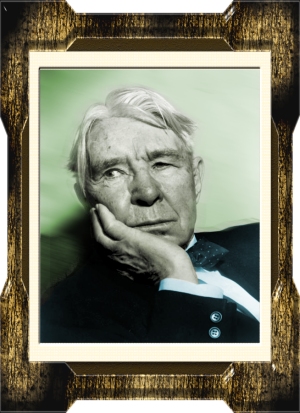

Sandburg on Cuba
Excerpts from
“Always the Young Strangers,” by Carl Sandburg
Harcourt, Brace and Company, New York, 1952
On Cuba – from page 376-377
“I read about the Spanish General Weyler and his cruelties with the people of Cuba who wanted independence and a republic. I read about Gomez, Garcia, the Maceos, with their scrabbling little armies fighting against Weyler. They became heroes to me. I tried to figure a way to get down there and join one of those armies. I would have signed up with any recruiting agent who could have got me down there. I believed I would have made a fair soldier in one of their armies. Nothing came of this hope.”
On the war against Spain - from page 403-404
On the night of February 15, 1898, I went to bed at nine-thirty with my fingers aching a little from running sandpaper over wood ten hours that day. I was asleep at nine-forty and still asleep at two o’clock in the morning. Not until later did I know that at two o’clock that morning the Secretary of the Navy in Washington heard a knock at the door that woke him from sleep and he was handed a telegram that nearly keeled him over. He got a White House watchman on the phone and told him to wake the President. On the phone Mr. McKinley heard the telegram read to him: “Maine blown up in Havana Harbor at nine-forty tonight. Many wounded and doubtless more killed or drowned.” The watchman could never forget as long as he lived how the President paced back and forth, shocked and trying to believe what he was saying as he paced back and forth, “The Maine blown up! The Maine Blown up!” She was a first-class battleship and of her three hundred and fifty-two officers and men, two hundred and sixty were dead and the ship had settled to the harbor bottom.
As the days went by and I went on sandpapering wood to make it smooth for the painters with their brushes, I believed what I read and heard. I believed that the same Spanish government whose General Weyler had killed thousands of Cuban patriots who wanted independence and a republic, that same Spanish government had a hand in blowing up the battleship Maine. I learned later that nobody knows to this day how the Maine was exploded or whether some man did it or it was an act of God. It became a mystery no more cleared up than the name of the man who threw the Haymarket bomb that killed eight policemen in Chicago. What I still believe to be established fact is that Weyler herded more than one hundred thousand people in concentration camps where more than half of them died of starvation and fever. I was going along with millions of other Americans who were about ready for a war to throw the Spanish government out of Cuba and let the people of Cuba have their republic. If a war did come and men were called to fight it, I knew what I would do. Across March and early April while the country roared with excitement, I went on sandpapering and thinking but I didn’t tell my blank-faced boss what I was thinking.
President McKinley declared war and I was sworn into Company C, Sixth Infantry Regiment of Illinois Volunteers, on April twenty-sixth for two years of service.
Related:
Struggle for Independence |
Ten Year War |
Little War |
War for Independence